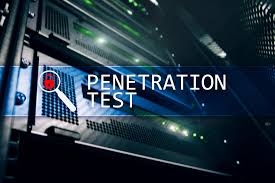Have you ever pondered how technology and law enforcement can work together? Do you want to know how information from digital or computer sources is gathered? If you indicated that you did, you might be interested in a degree program in computer forensics. Discover what you’ll learn in a digital forensics course by reading on.
What Exactly Is a Digital Forensic?
Digital forensics is the process of lawfully gathering, processing, evaluating, and preserving digital evidence of cybercrimes. It is also known as computer forensics or cyber forensics. The presentation of such evidence in a civil or criminal court is also included. To keep data secure and identify the illegal activity as soon as possible, private business firms use digital forensics, frequently used in legal disputes or criminal investigations.
Career Options For Those With Degrees In Digital Forensics
Law enforcement and criminal justice careers may be open to professionals with certification in digital forensics courses or management information systems that also involve forensics coursework. When given instances involving computer-related criminality, law companies frequently collaborate with examiners or analysts of digital forensics.
Digital Crime
You’ll spend time studying digital crime in a digital forensics course. To comprehend the methods, rules, applications, and guiding principles of computer forensics, you’ll study the fields of computer crime and digital evidence. In these sessions, you’ll learn about legal and moral issues pertaining to computer forensics.
You might observe actual cases in some seminars to practice giving evidence and producing forensic reports. You will gain knowledge of security topics such as protocol routing, intrusion detection, service denial attacks, and DOS detection.
Computer Related Investigations
Criminal investigations can use computer forensics for various crimes, not just those committed with a computer or connected device. Since digital forensics is still a relatively new aspect of police work and detective responsibilities, law enforcement has had some difficulty adjusting to this new forensics technique. The cops’ need to pore through so much digital data is one of the issues. Because there is evidence everywhere, you also need to consider the cloud. Digital traces are left by criminals who use gadgets during the crime itself, investigate crime scenes or procedures, or both.
Technical Expertise
While enrolling in a computer forensics degree program, you will study more complex topics in addition to the fundamentals of computer science. This involves conducting independent research that may help understand existing trends or unearth fresh approaches to computer forensics. Data mining, predictive modeling, profiling, and alias discovery are some methods you’ll study.
Conclusion
Developing a solid foundation in digital forensics might open up various professional options. A thorough understanding of computer forensics is essential for cyber security managers, whether they work in the private sector, in governmental or non-governmental organizations, to quickly identify, prevent, and address cybercrime.
A digital forensics course is a significant first step, regardless of whether your goal is to protect your business or organization from cybercrime, seek a career in detective or legal work, or both. You will study digital forensics when you enroll in the Hacker School and choose the digital forensics courses. This will provide the data you need to identify and pursue hackers anywhere they may enter your company.

